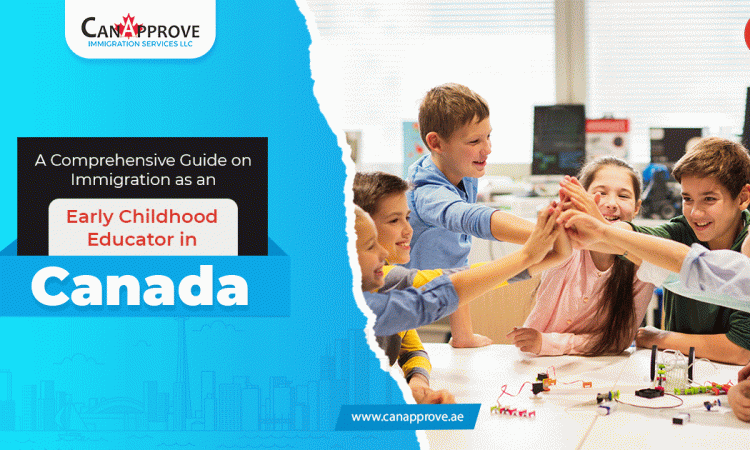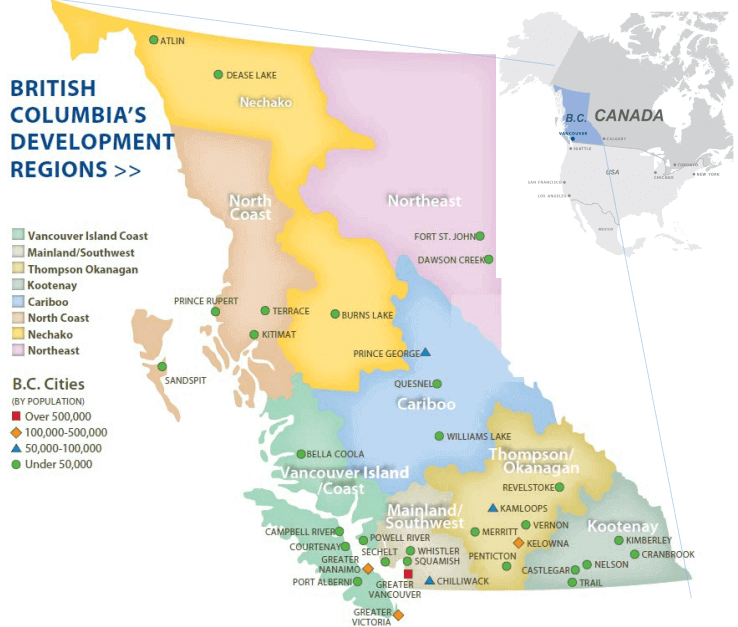In the world of immigration to countries like Canada, where the demand for skilled workers is high, the Express Entry system has popped up as a popular pathway for individuals seeking permanent residency. However, within this system, there’s a pivotal decision to make: whether to pursue Category Based draws or General Draws. So it is very essential to know about the Express Entry strategies that we need to use nowadays.
Each approach carries its own set of advantages and considerations, making the choice between the two draws a significant one for prospective immigrants. The Canadian government, through Immigration, Refugees and Citizenship Canada (IRCC), is constantly innovating its Express Entry system to attract skilled workers who address labor shortages.
This blog explains the new strategy and helps you decide if it’s the right path for your Express Entry ambitions.
Understanding Express Entry Draws
Before we anatomize the differences between Category Based and General Draws, let’s first understand the basics of how Express Entry draws function. The Express Entry system manages applications for three federal immigration programs: the Federal Skilled Worker Program, the Federal Skilled Trades Program, and the Canadian Experience Class. Eligible candidates create an online profile detailing their skills, work experience, education, language ability, and other relevant factors. Based on these profiles, candidates are assigned a Comprehensive Ranking System (CRS) score, which determines their rank within the Express Entry pool.
Periodically, Immigration, Refugees, and Citizenship Canada (IRCC) conducts draws from the pool, inviting candidates above a certain CRS score to apply for permanent residency. The CRS cutoff score is dynamic, fluctuating with each draw based on factors such as the number of available spots and the quality of candidates in the pool.
Category Based Draws
Category Based draws, as the name suggests, target specific groups or categories of candidates. These categories may include individuals with certain skills, occupations in high demand. The aim of Category Based draws is to address specific labor market needs.
Canada’s Category-Based Express Entry targets skilled workers in six key areas to address labor shortages. Here’s a breakdown of the fields that might issue Invitations to Apply (ITAs) through category-based draws:
- French Language Proficiency: This category targets candidates with strong French language skills, typically requiring a Canadian Language Benchmarks (CLB) score of at least 7 in all four abilities (reading, writing, listening, and speaking). This reflects Canada’s commitment to bilingualism.
- Healthcare Occupations: If you have work experience in a healthcare field that is facing a shortage in Canada, you might be eligible for an ITA through this category. There’s a specific list of occupations that qualify, typically including nurses, doctors, and personal care workers.
- Science, Technology, Engineering, and Math (STEM) occupations: This category targets candidates with experience in high-demand STEM fields. There’s another specific list of qualifying occupations, which might include software engineers, data analysts, and engineers of various disciplines.
- Trades Occupations: Skilled workers in trade professions are in high demand in Canada. This category might issue ITAs to candidates with experience in designated trades, such as carpentry, plumbing, or electrician work.
- Transport Occupations: If you have experience operating various transportation vehicles or working in related logistics fields, you might be eligible for an ITA through this category. There’s a specific list of qualifying occupations, which could include truck drivers, bus drivers, or logistics coordinators.
- Agriculture and Agri-Food Occupations: This category aims to address labor shortages in the agricultural sector. With a limited list of qualifying occupations, it might target farm workers, butchers, or agricultural equipment operators.
Advantages of Category Based Draws:
- Targeted Selection: Category Based draws allow immigration authorities to address specific skill shortages or labor market demands. This targeted approach ensures that candidates with skills in demand have a higher chance of receiving an invitation to apply for permanent residency.
- The Impact of CRS Score: For draws based on general draw criteria, a high CRS score is typically required. However, even if you have a lower CRS score, if you are eligible for any category-based selection, then there is a possibility to get an invitation if you meet the selection criteria.
- Streamlined Processing: By focusing on specific categories, Category Based draws can expedite the processing of applications, benefiting both candidates and the Canadian economy by swiftly filling skill gaps.
Impact on CRS Score Calculation
The CRS cut-off score for category-based draws can fluctuate depending on several factors:
- Overall Pool Size: The total number of candidates in the Express Entry pool can affect the cut-off score. A larger pool might push the score higher.
- Candidate Ranking: If many candidates within the category have very high CRS scores, the cut-off score might also rise.
- Number of ITAs Issued: The number of ITAs IRCC plans to issue can influence the cut-off score.
General Draws
In contrast, General Draws cast a broader net, inviting candidates from various occupations and skill sets based simply on their CRS scores. Unlike Category Based draws, which prioritize specific categories, General Draws aim to maintain a balance between different skill sets and occupations within the immigration pool.
Advantages of General Draws:
- Inclusivity: General Draws ensure that candidates from diverse backgrounds and occupations have an equal opportunity to receive invitations to apply for permanent residency. This approach promotes fairness and equity within the Express Entry system.
- Flexibility: Candidates with a wide range of skills and experiences can participate in General Draws, providing them with multiple pathways to immigrate to Canada. This flexibility accommodates individuals who may not fall within the scope of Category Based draws.
- Comprehensive Selection: By considering candidates based only on their CRS scores, General Draws provide a comprehensive selection process that reflects the overall skill composition and diversity of the Express Entry pool.
Continued Relevance of Express Entry Profiles
Even if you aren’t selected through a targeted draw, maintaining a strong Express Entry profile is crucial. Your profile remains in the pool for consideration in future general draws and potentially future targeted draws that might better match your qualifications. An active Express Entry profile is also necessary for being selected by certain provinces.
Specific Requirements for Each Category
Specific requirements for each category will be clearly outlined by IRCC before each draw. Be sure to stay updated on IRCC announcements to tailor your application strategy. Each targeted draw might have additional requirements beyond a baseline CRS score and a relevant NOC code.
Making the Decision: Which Path to Choose?
When deciding between Category Based and General Draws for Express Entry, several factors come into play, including your occupation, skill set, CRS score. It’s essential to assess your individual circumstances and long-term immigration goals before determining the most suitable path.
If your occupation aligns with categories frequently targeted in Category Based draws or if you have a provincial nomination, pursuing this route may enhance your chances of receiving an invitation to apply for permanent residency. Conversely, if you possess a competitive CRS score and your occupation is not specifically targeted, participating in General Draws might offer a viable pathway to immigration.
Ultimately, both Category Based and General Draws serve the overarching goal of fulfilling Canada’s economic and labor market needs while providing opportunities for skilled individuals to contribute to the country’s growth and prosperity. By understanding the distinctions between these two approaches, you can make an informed decision that aligns with your immigration aspirations and maximizes your chances of success in the Express Entry system.
Choose Canapprove By Your Side
Navigating the intricacies of Express Entry, particularly the new category-based draws, can be complex. Regularly monitor IRCC announcements to understand upcoming categories and tailor your application accordingly. Consider seeking professional guidance to navigate the complexities of Express Entry strategies. To maximize your chances of success, consider partnering with an experienced immigration consultant like CanApprove. Our team of experts can assess your profile, identify the best path for your situation (general or category-based draws), and guide you through the entire application process.
With CanApprove’s expert guidance by your side, you can approach Express Entry with confidence, maximize your chances of receiving an Invitation to Apply, and ultimately achieve your Canadian immigration goals.



















